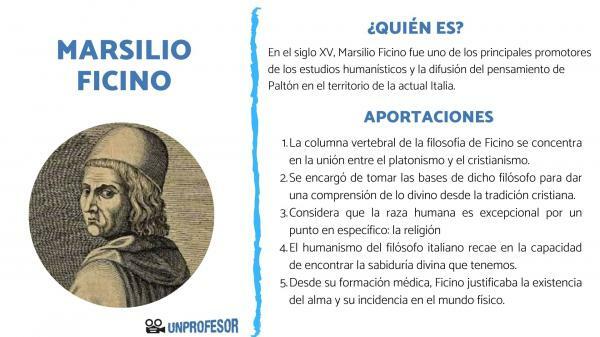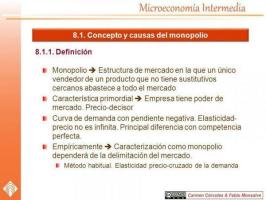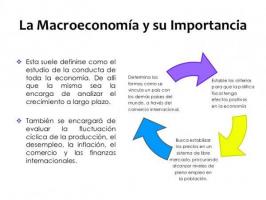Marsilio FICINO: thought and philosophy
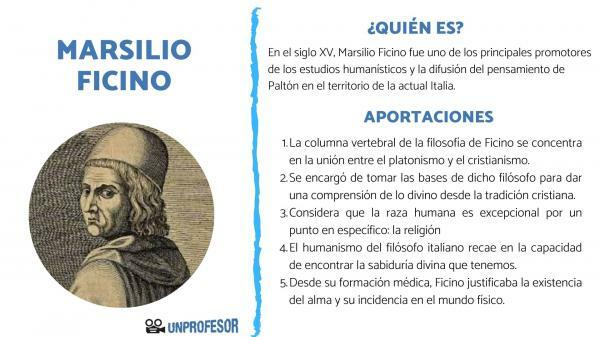
In the fifteenth century, Marsilio ficino he was one of the main promoters of the humanistic studies and the diffusion of Plato's thought in the territory of present-day Italy. With the aim of connecting the Christian tradition with Platonism he founded a school in Florence with the support and protection of Cosimo de Medici. Both his works and his thought were fundamental for the later development of Renaissance poetics and philosophy. In this lesson from a teacher we will summarize the thought of Marsilio Ficino.
Before going into the summary of his philosophy, it is pertinent to mention some generalities of his biography. Ficino was born in 1433 in Figline, present-day Italy and died in Florence in 1499. He was trained in the study of Greek and Hebrew. In the context of the emergence of Renaissance, as a transitional period between Middle Ages and the Modern Age, he drank from different philosophical, literary and religious currents.
In 1452 Cosme de Medici, one of the richest men in Europe,
he welcomed him and commissioned him to create a renewed Platonic Academy. Precisely, his relationship with the Medici family allowed Ficino to position himself as a benchmark of intellectual life in Florence. His most outstanding work is entitled Platonic theology.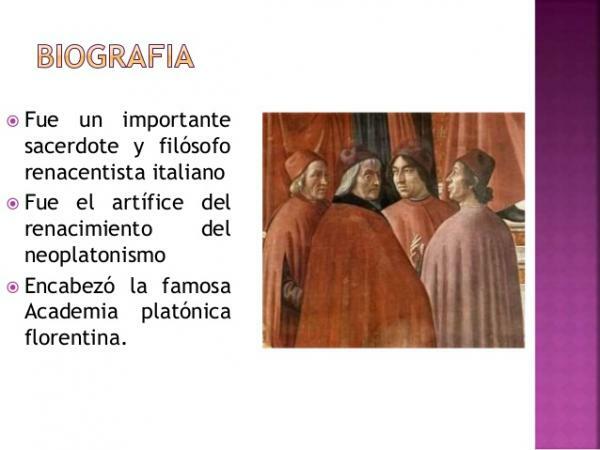
The backbone of Ficino's philosophy focuses on the union between Platonism and Christianity. To do this, he drew on the metaphysics of Neoplatonism, loaded with a source of mysticism and the idea of inner purification to reach the knowledge of God. In this enterprise, he was also one of the main translators of Plotinus, one of the referents of Neoplatonic philosophy.
Platonic theology
According to the Stanford University Encyclopedia of Philosophy, Ficino considered Plato as the father of a very valuable wisdom that allowed the path and contact with the divine: “It is in the preface to his work that he writes about Plato that‘ regardless of the subject on which he deals, he quickly brings it back, in a spirit of utmost piety, to the contemplation and adoration of God. '
With this basis, we can see why his philosophy is Platonic theology, since he was in charge of taking the bases of said philosopher to give an understanding of the divine from the christian tradition. Parallel, in the Encyclopedia we find clues of the type of approach that Ficino had: "the Platonic Theology it was a work of synthesis, not of systematic philosophy, as eighteenth-century thinkers would have understood it. Different styles of argumentation, use of rhetorical language, numerous puns, allusions Intellectuals, sourceless citations, as well as open appeals to faith compete for the attention of the reader".
However, this was not his only work, he also wrote The Christian Religion, a text that accompanies his thoughts and his reflections on the wisdom of Christianity with his own life experience as one delivered to dogma. Let us now see how Ficino's field of work extended to other areas of knowledge that were related to his vision of the supremacy of the human being over the natural world.
Humanism
In different passages of his books, Marsilio Ficino conceives that, above all animals, the human race is exceptional for a specific point: religion. Thus, the humanism of the Italian philosopher falls on the ability to find the divine wisdom that we have.
Thus, the human being who delved into philosophy and carefully observed the world, could find and reveal the truth of God. Hand in hand with this thought, and under the influence of his father, he dedicated himself to medicine in a context where Europe was struck down by various plagues.
Since his medical training, Ficino justified the existence of the soul and its incidence in the physical world, in one of his texts, rescued by the Stanford University Encyclopedia of Philosophy, points out: “Doctors define the spirit as a vapor of blood: pure, subtle, hot and clear. After being generated by the heat of the heart from the subtlest blood, it flies to the brain; and there the soul uses it continuously for the exercise of the inner and outer senses ”.
For his time, his posture was classified as modern and that is why the name of Ficino is usually associated with the Renaissance. For although his vision was closely linked to religious life, he no longer had that hermetic posture of the Middle Ages.. The mixture between the Platonic tradition, the scientific approach to medicine and their knowledge in languages such as the Latin, Hebrew and Greek allowed him to renew and propose a new approach that mixed philosophy and theology Christian.
